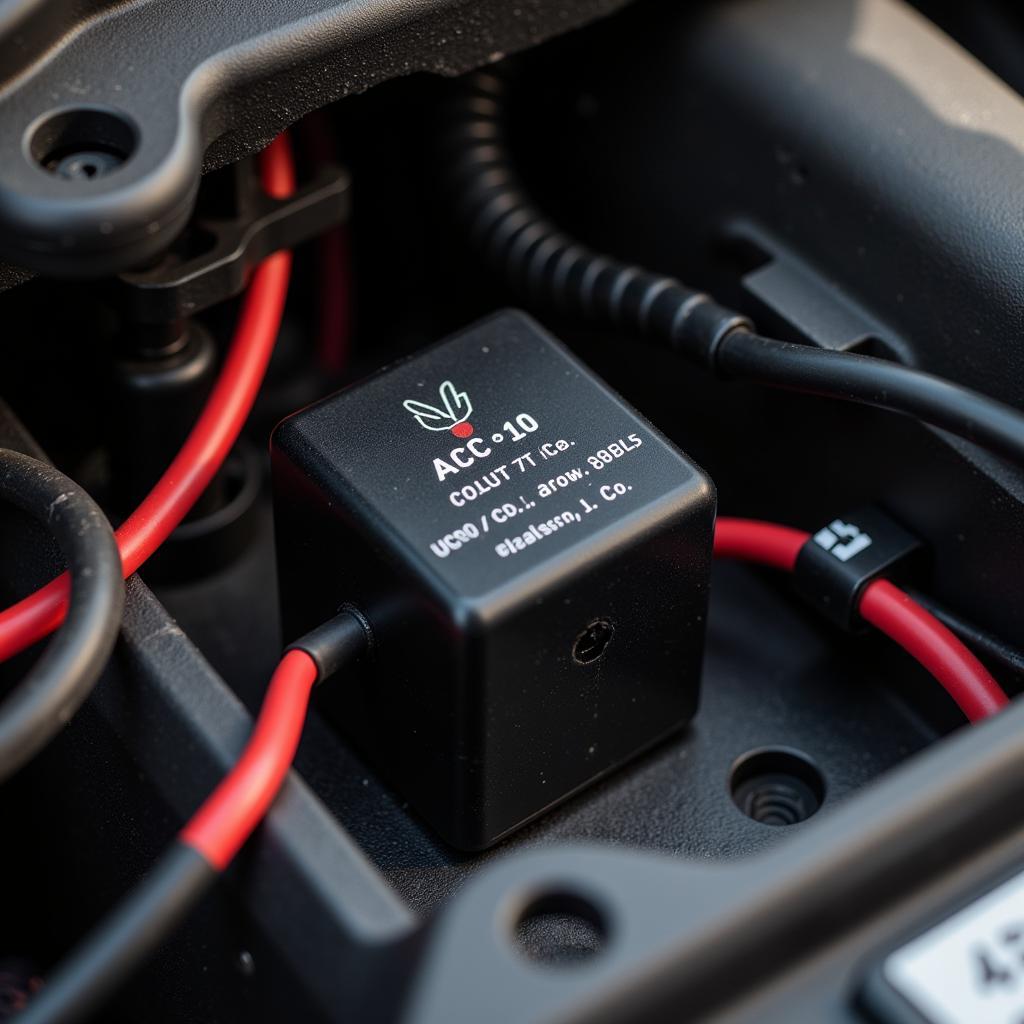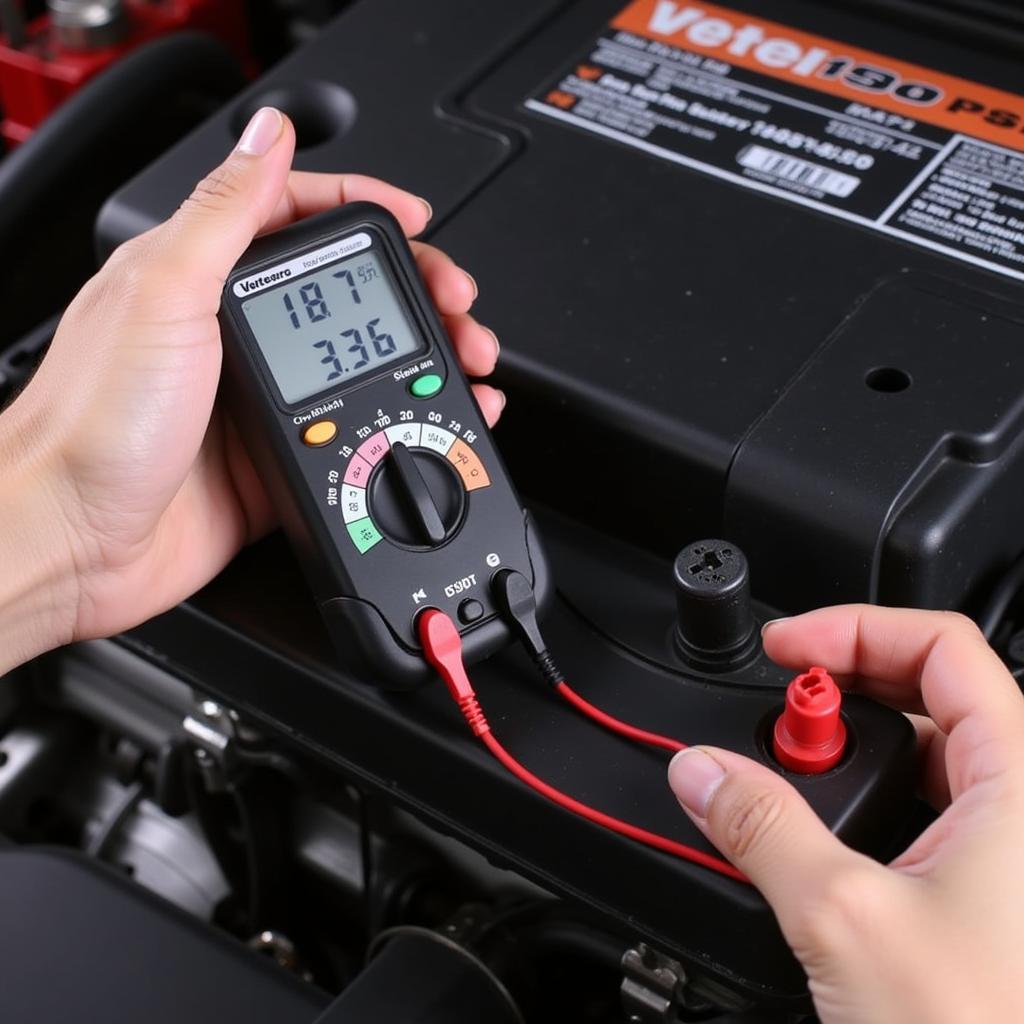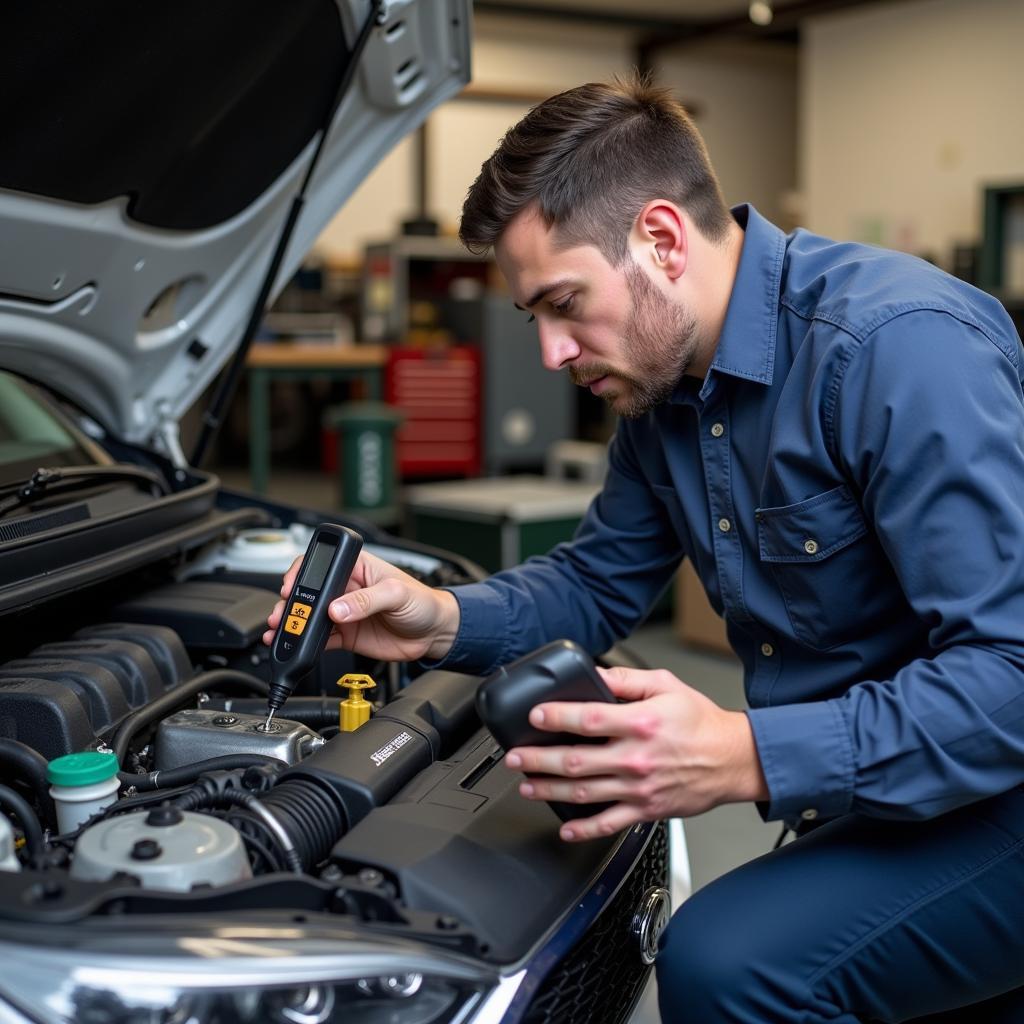Hearing a clicking noise after your car is turned off can be unsettling. It’s a common issue that can stem from a variety of sources, ranging from simple relays to more complex components within your vehicle’s electrical system. This comprehensive guide will walk you through the most likely culprits and provide step-by-step instructions on how to diagnose and potentially fix the problem yourself.
Common Causes of Clicking Noises After Turning Off Your Car
Several components can contribute to that annoying clicking sound after you’ve parked and turned off the ignition. Here are some of the most common causes:
Relays
Relays are electromagnetic switches that control various electrical circuits in your car. A failing relay can often produce a clicking sound as it struggles to switch on or off, even after the ignition is off. Common relays that might cause this issue include fuel pump relays, starter relays, and fan relays.
Fuel System Components
The fuel system can also be a source of clicking noises. The fuel pump, responsible for delivering fuel to the engine, sometimes makes a clicking sound if it’s experiencing problems with pressure or electrical connections. Similarly, fuel injectors can also click if they are leaking or malfunctioning.
Electrical System Issues
A variety of electrical issues can lead to clicking sounds after the car is turned off. This includes problems with the alternator, battery, or wiring. A faulty alternator can put a strain on the battery, leading to clicking noises as the system attempts to regulate power. Loose or corroded wiring can also cause intermittent clicking.
 Clicking Relay Under the Hood
Clicking Relay Under the Hood
Cooling Fan
The cooling fan is designed to keep the engine at an optimal temperature, and sometimes it needs to run even after the engine is off. This is particularly true in hot weather or after strenuous driving. If the fan motor is failing or there’s an issue with the fan control module, it can produce a clicking sound.
Solenoids
Solenoids are electromechanical devices that control various systems in your car, such as the starter, transmission, and HVAC. A malfunctioning solenoid can create a clicking noise as it struggles to engage or disengage.
How to Diagnose and Fix the Clicking Noise
Before you start troubleshooting, ensure your car is parked safely and the ignition is off.
- Identify the Location: Try to pinpoint the source of the clicking noise. Is it coming from under the hood, the dashboard, or somewhere else? This can help narrow down the potential causes.
- Check the Relays: Locate the relay box (usually under the hood or beneath the dashboard) and inspect the relays for any signs of damage or corrosion. Try swapping a suspected faulty relay with a similar one to see if the clicking stops.
- Inspect the Fuel System: Listen carefully around the fuel pump (usually located near the fuel tank) and injectors for clicking sounds. Check for leaks and loose connections.
- Test the Battery and Alternator: Have your battery and alternator tested at an auto parts store or mechanic to rule out any electrical problems.
- Examine the Cooling Fan: Observe the cooling fan after turning off the engine. If it continues to run and makes clicking noises, there might be a problem with the fan motor or control module.
 Checking Car Battery With Multimeter
Checking Car Battery With Multimeter
Expert Insights
“Often, the simplest solution is the correct one. Start by checking the relays and fuses, as they are common culprits and easy to replace,” says John Miller, Automotive Electrical Engineer at Auto Experts Inc.
“If the clicking noise persists, it’s best to consult a qualified mechanic to avoid potentially causing further damage to your vehicle,” adds Sarah Johnson, Senior Mechanic at Reliable Auto Repair.
How to Fix Clicking Noise After Car Turned Off: A Summary
Troubleshooting a clicking noise after your car is turned off requires a systematic approach. By checking the relays, fuel system, electrical components, cooling fan, and solenoids, you can often pinpoint the source of the problem. Remember, safety first! If you’re unsure about any of these steps, don’t hesitate to seek professional help.
 Mechanic Inspecting Car Engine
Mechanic Inspecting Car Engine
We at AutoTipPro are always here to assist you with your automotive needs. Feel free to contact us at +1 (641) 206-8880 or visit our office at 500 N St Mary’s St, San Antonio, TX 78205, United States.
FAQ
- What is the most common cause of clicking noises after turning off the car? Often, it’s a failing relay.
- Can a low battery cause clicking noises? Yes, a low or failing battery can contribute to this issue.
- Is it safe to drive my car if it’s making clicking noises? It depends on the cause. If the noise is due to a minor issue like a faulty relay, you might be able to drive for a short period, but it’s best to address the problem promptly. If the noise is related to the fuel system or other critical components, driving could be dangerous.
- How much does it cost to fix a clicking noise after the car is turned off? The cost can vary greatly depending on the underlying cause. Replacing a relay might cost a few dollars, while fixing a more complex issue like a faulty alternator can cost several hundred dollars.
- How can I prevent clicking noises after turning off my car? Regular maintenance, including checking your battery, alternator, and relays, can help prevent many electrical issues that lead to clicking noises.
- What tools do I need to diagnose a clicking noise? Basic tools like a screwdriver, wrench, and multimeter can be helpful. More complex diagnostics might require specialized equipment.
- Should I disconnect the battery if I hear clicking noises? If you suspect a serious electrical problem, disconnecting the negative battery terminal can be a safety precaution. However, this should be done carefully to avoid shocks or damage to the electrical system.






Leave a Reply